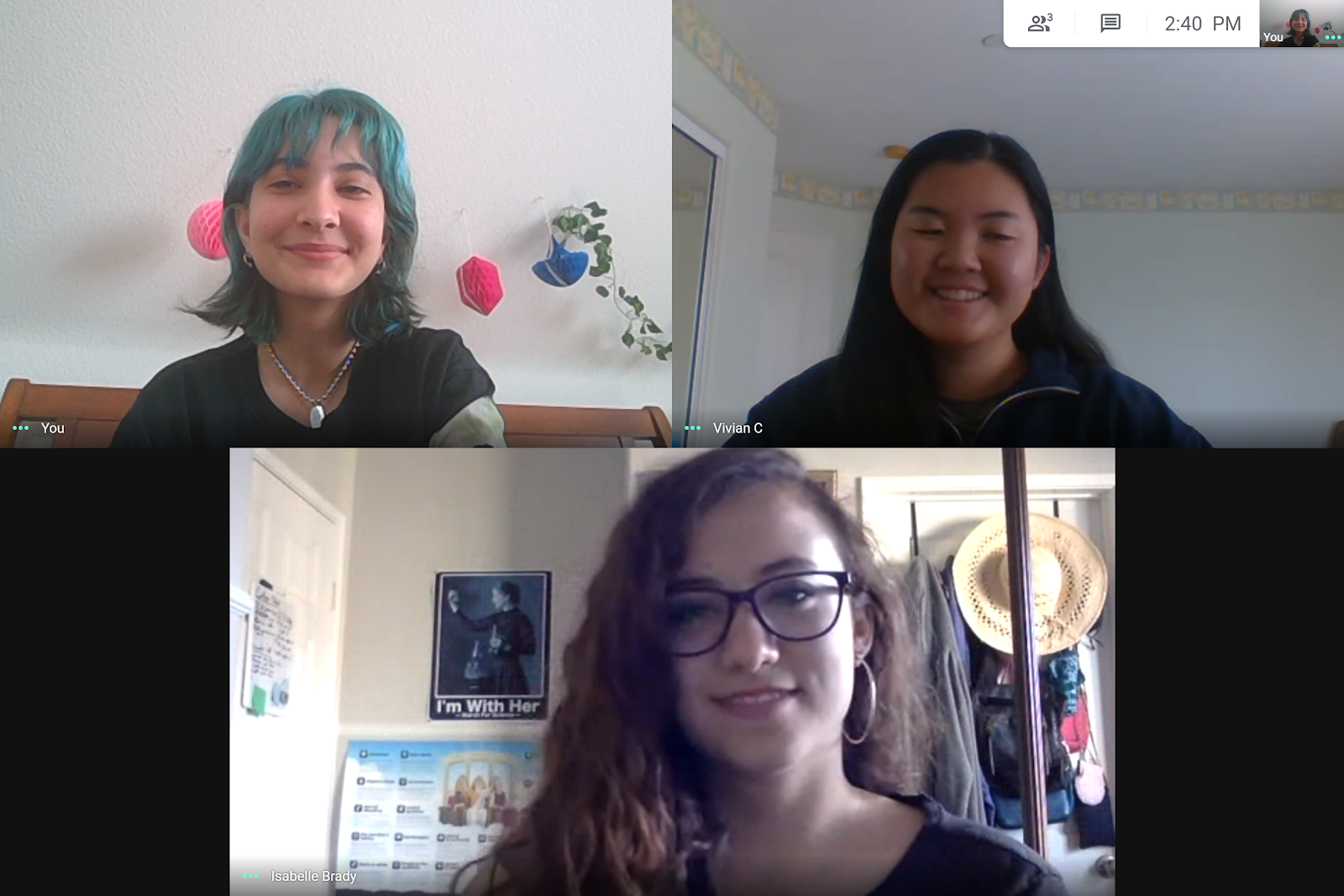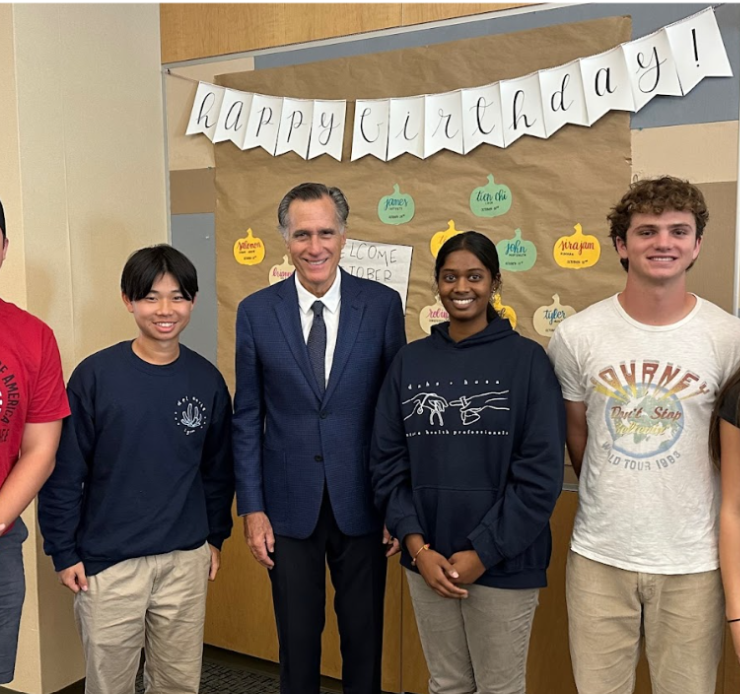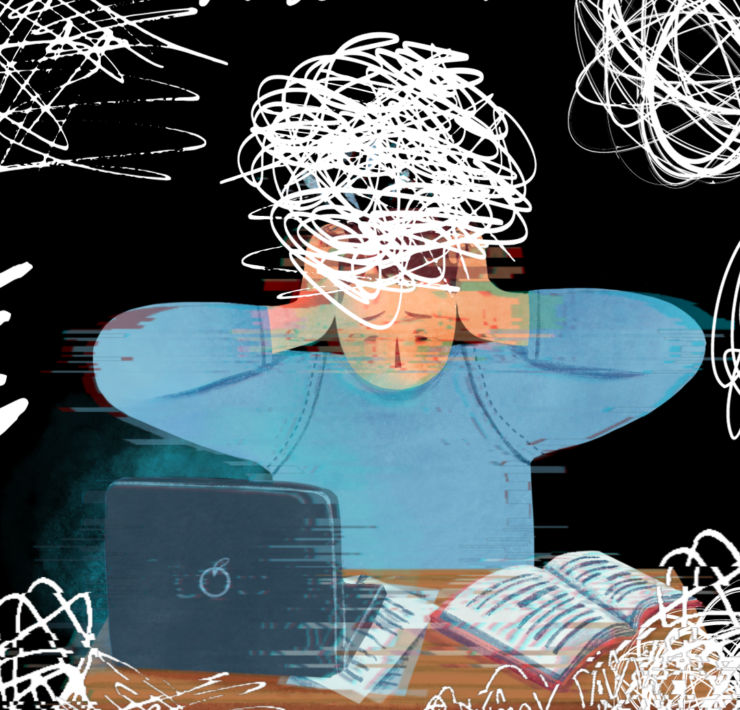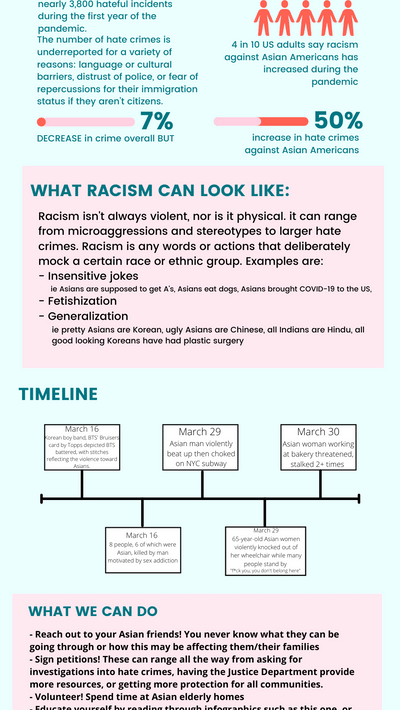Krenz Implements New Monitoring Strategies to Dissuade Cheating
During in-person learning, teachers could physically monitor students taking tests to ensure their devices were stored away. Virtual learning has taken away that aspect of test supervision. Now, math teacher James Krenz is taking advantage of advanced technology to test students’ abilities — not Google’s.
On test days, students in Krenz’s class join Zoom on both their computers and phones. One screen shows the student’s face while the other shows their hands. This way, if students look downwards, Krenz knows what they are doing beyond what the computer camera displays.
When Krenz first proposed this idea to his class, some of the students argued that showing their hands as they work on the test means other students can view their answers. However, Krenz defends his method by stating that these math tests require speed and concentration that does not give students an opportunity to hunt for others’ answers. Joining the meeting with two screens prevents kids from using their notes or other resources, as their workspace is shown throughout the entire test.
Another tool Krenz uses is checking how many times students click out of the MyConnect tab.
“I am still working out the kinks on this one,” Krenz said, “but it’s powerful as it tells me [if] a student is trying to access via their computer another website to help them solve the math problems.”
Krenz puts faith in these techniques, stating, “It is stopping students from changing their overall test grades by more than 15 percent, which is stopping them from changing their overall grade by one letter grade.”
Although cheating happens more frequently in distance learning than in-class learning, Krenz states that most of his students are taking their tests honestly and getting the grades they deserve. He emphasizes that cheating and the possibility of getting a few extra points is not worth the sacrifice of character.
“Students need to realize the more they cheat, the less prepared for college they become,” Krenz said.
“In the end, it is easier to cheat during virtual learning,” Krenz admitted. “But virtual learning will end soon and, at least in math, anyone who has cheated significantly will pay a price in their next year’s [sic] math class.”
Ellie is a former staff writer for The Talon. She loves traveling and being with her family and friends. As a member of the Talon, she looks forward to learning different writing styles and bringing relevant news to people at Del Norte.
Karina is a former photographer for The Talon. In her free time, she enjoys singing, dancing, baking, being in musical theater productions, as well as talking with friends.







